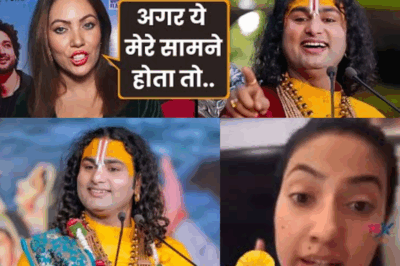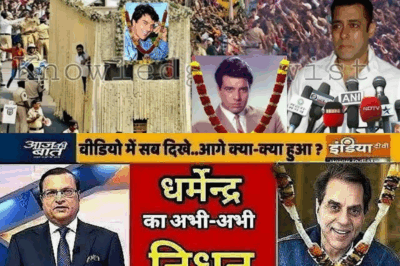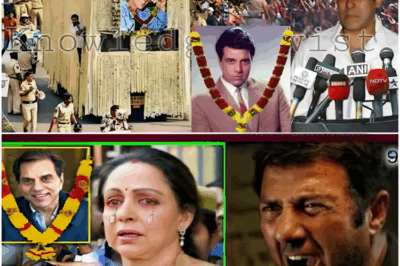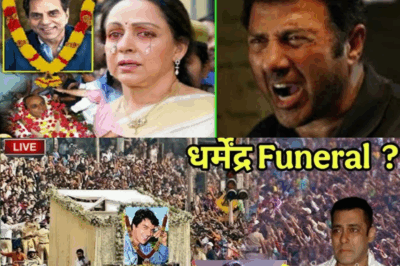Etawah Yadav Kathavachak Controversy: Brahmin vs Yadav! Understanding the Full Story and its Political Implications | Akhilesh Yadav Reacts
A recent incident in Etawah, Uttar Pradesh, has sparked a heated debate across social, religious, and political circles after a confrontation at a religious event led to tensions between the Brahmin and Yadav communities. The episode, now widely referred to as the “Kathavachak Kand,” has not only highlighted the persistent caste divisions in Indian society but has also drawn sharp reactions from political leaders, including former Chief Minister Akhilesh Yadav.

The Incident: What Really Happened?
The controversy unfolded during a Bhagwat Katha, a traditional Hindu religious discourse, organized in a village in Etawah district. The organizers had invited a Yadav kathavachak, or storyteller, to narrate the religious stories. Traditionally, such roles are often taken up by members of the Brahmin community, who are considered the traditional custodians of religious rituals and discourses in many parts of North India.
According to eyewitness accounts, some members of the Brahmin community present at the event objected to the Yadav kathavachak leading the discourse. They argued that the sanctity and tradition of the event were being compromised. The Yadav participants, on the other hand, viewed this objection as an act of caste-based discrimination and an affront to their dignity.
What began as a verbal disagreement soon escalated into a heated altercation, with both sides exchanging accusations and, reportedly, engaging in a minor scuffle. The situation threatened to spiral out of control until local police intervened and brought the situation under control. Videos of the incident quickly spread on social media, igniting a larger debate about caste, tradition, and social equality.
Social and Political Fallout
The incident has since become a flashpoint for discussions on caste relations in Uttar Pradesh. Yadav leaders and community members have condemned the objections raised by the Brahmin participants, calling them regressive and contrary to the spirit of social harmony. Many have pointed out that knowledge and religious practice should not be the monopoly of any single caste, and that everyone should have the right to participate in such events.
On the other hand, some Brahmin representatives have defended their stance, arguing that centuries-old traditions should be respected and that the event’s organizers should have considered the sentiments of all communities involved.
The controversy has also taken a political turn. Akhilesh Yadav, leader of the Samajwadi Party and a prominent figure from the Yadav community, was quick to respond. In a public statement, he condemned the incident and called for unity and mutual respect among all communities. “No community owns religion or knowledge. We must move forward together, respecting each other’s dignity and rights,” he said.

Police Action and Current Status
Following the incident, the Etawah police registered a case and launched an investigation to determine the exact sequence of events and identify those responsible for any violence or disruption. Additional police forces were deployed in the area to maintain peace and prevent any escalation. Community leaders were called for a meeting with district officials to appeal for calm and to ensure that such incidents do not recur.
Why This Matters
The “Kathavachak Kand” has once again brought to the fore the sensitive issue of caste in Indian society, particularly in rural Uttar Pradesh. With state elections on the horizon, political parties are keeping a close watch on the situation, aware that such controversies can influence public opinion and voter behavior.
The incident has also sparked a wider conversation on social media, with many young people questioning the relevance of caste-based restrictions in modern India. As the investigation continues, the hope is that dialogue and understanding will prevail, and that such incidents will serve as a catalyst for greater social harmony.
News
Drama Explodes Online 🎥: ‘Drone Chor’ Mastermind Finally Caught — Truth Behind The Thefts Stuns Nation!
Drone Theft Mastermind Caught! The Shocking Truth Behind India’s Viral ‘Drone Chor’ Finally Exposed In a sensational twist that has…
Comedy World Shattered 😭: Kapil Sharma Suffers Stroke, Bharti Singh Collapses in Tears at Hospital!
Comedy World Shattered 😭: Kapil Sharma Suffers Stroke, Bharti Singh Collapses in Tears at Hospital! Kapil Sharma Hospitalized After Low…
Bollywood Icon Dharmendra: Rumors of Death Unfounded, Family and Fans Urged to Pray for His Recovery
Bollywood Icon Dharmendra: Rumors of Death Unfounded, Family and Fans Urged to Pray for His Recovery Introduction In the ever-buzzing…
Shock in Comedy World : Kapil Sharma Suffers Stroke — Bharti Singh Breaks Down Crying at Hospital!
Sad News: Bharti Singh brokedown as Kapil Sharma admitted to Hospitaafter Stroke! Kapil Sharma Hospitalized After Low Blood Pressure Scare:…
Today Bollywood King Dharmendra passed away..? Dharmendra has died, see full information
Bollywood Icon Dharmendra: Rumors of Death Unfounded, Family and Fans Urged to Pray for His Recovery Introduction In the ever-buzzing…
Bollywood King Dharmendra has passed away today. See the full details about Dharmendra’s death.
Bollywood King Dharmendra has passed away today. See the full details about Dharmendra’s death. In the constantly active realm of…
End of content
No more pages to load












